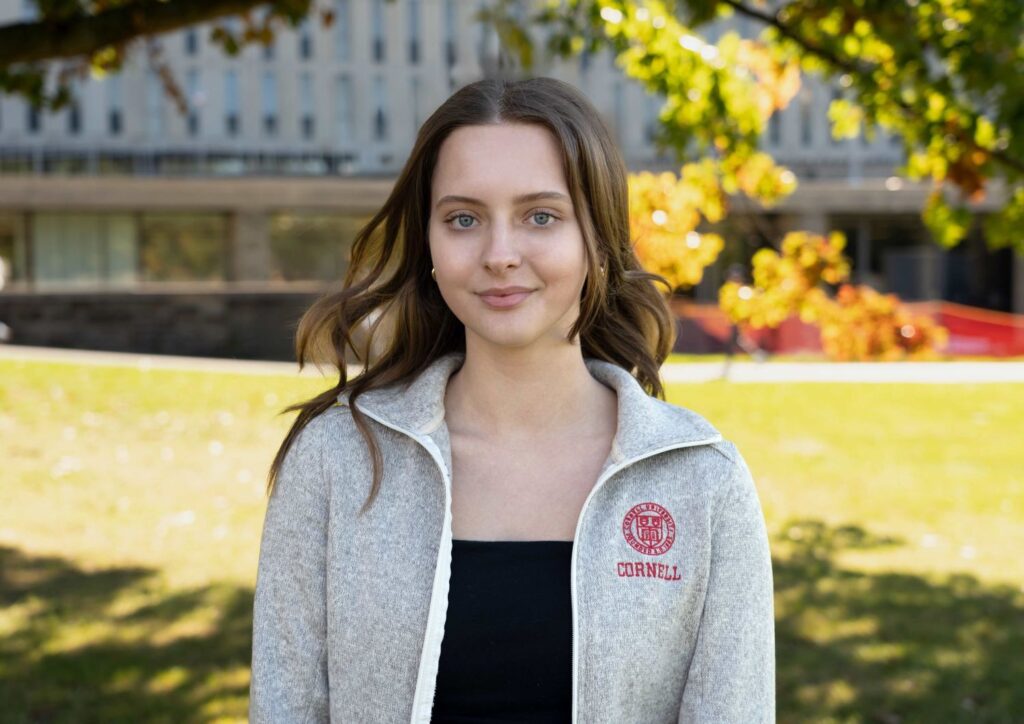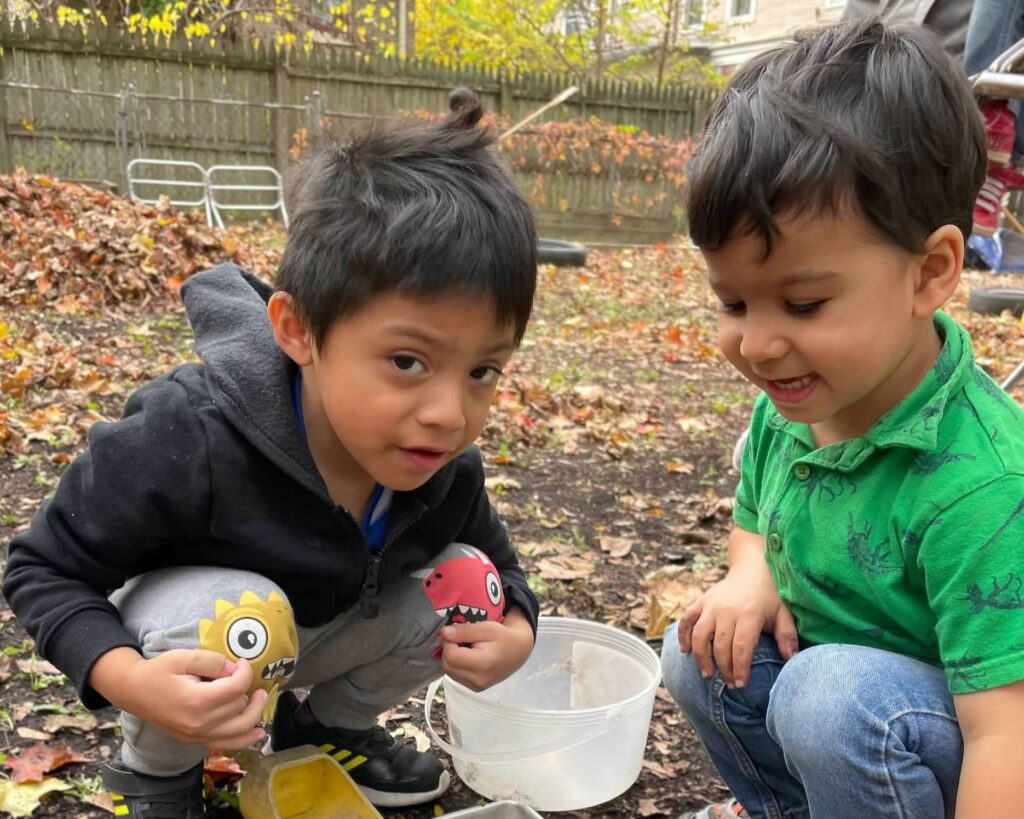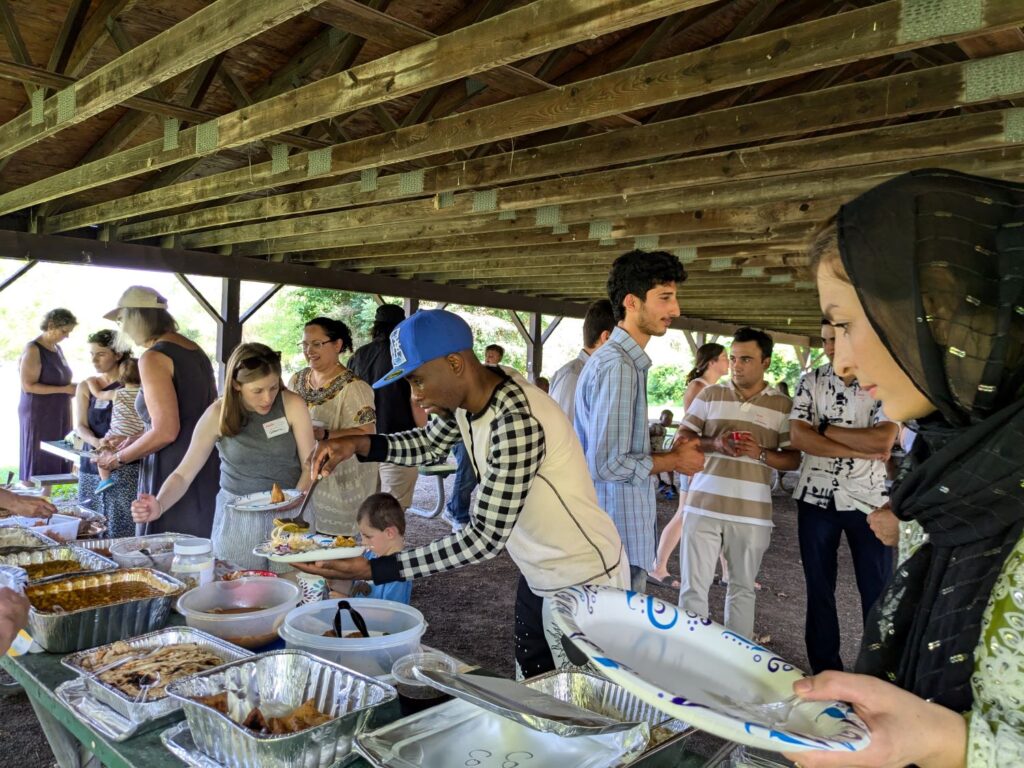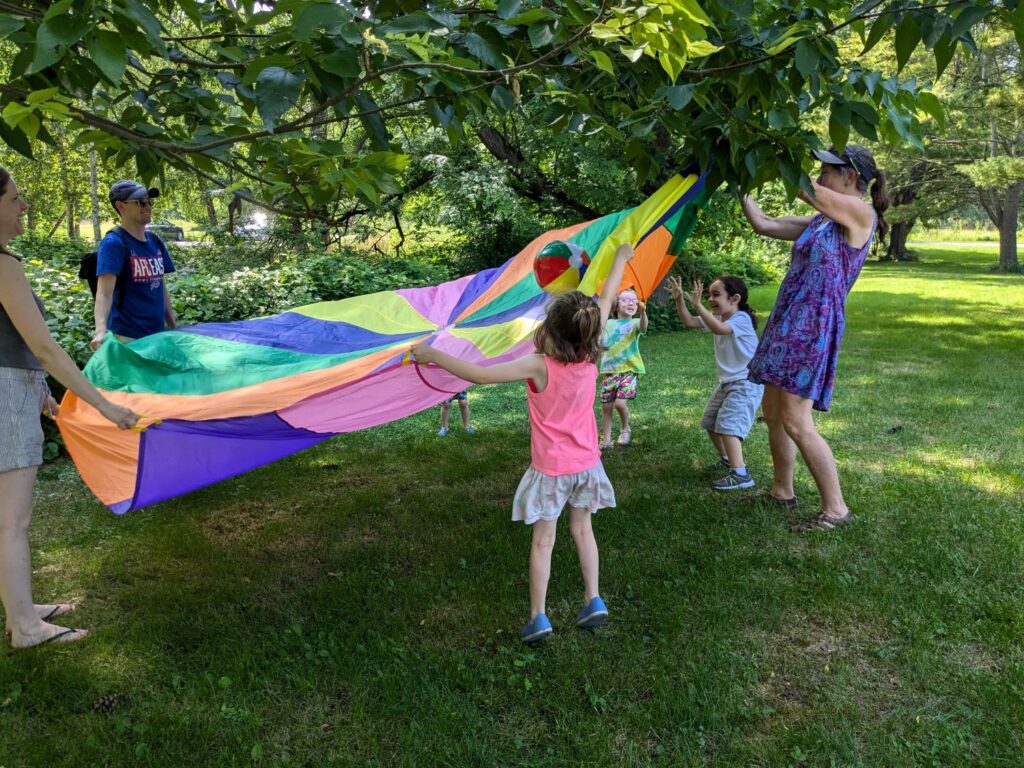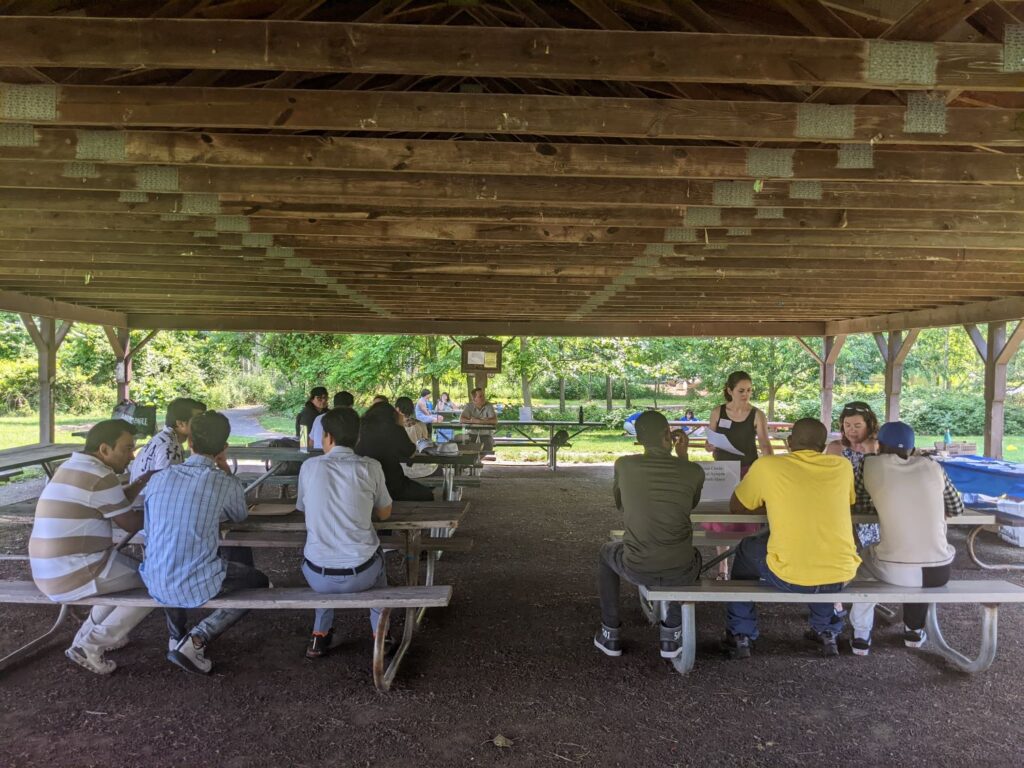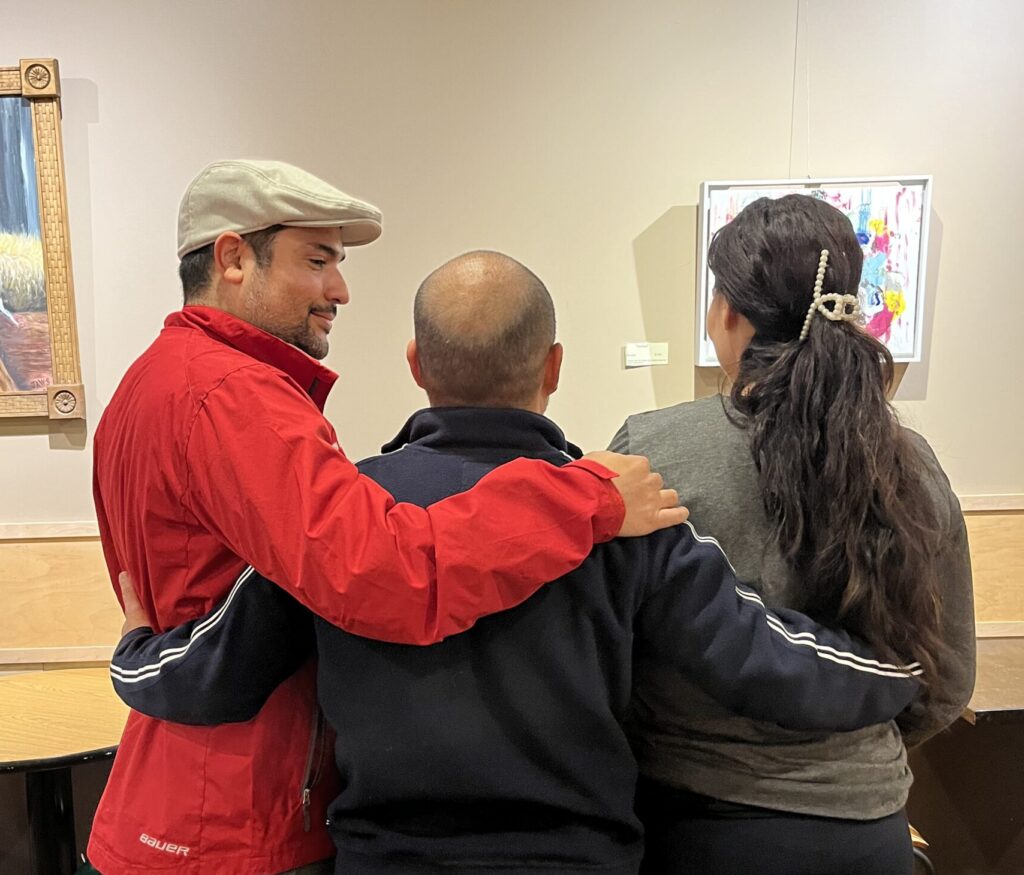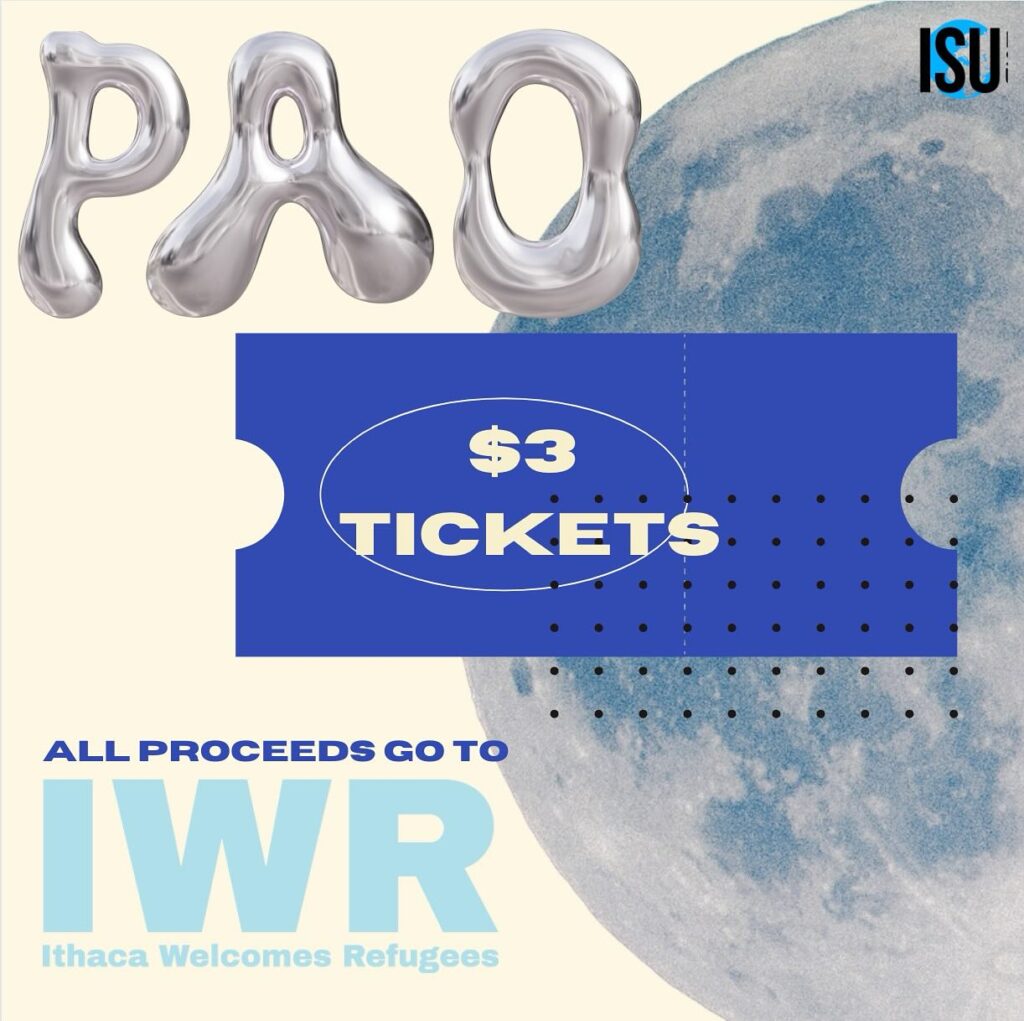In the words of a Global Roots mother
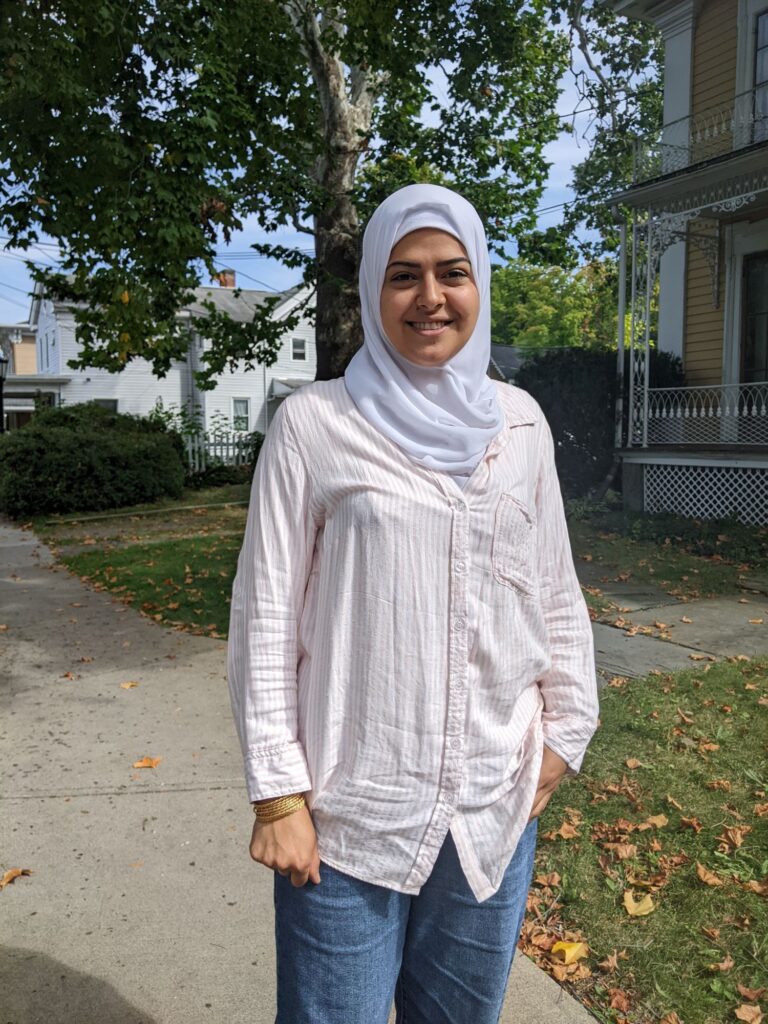
Zahraa Aldelfi moved from Iraq to the United States in July 2013 with her young family. Her middle child, Rayhana, was among the first to enroll at IWR’s Global Roots Play School when it opened. Now, her youngest daughter Habiba is attending, and Zahraa herself works there as a teacher.
Zahraa talks from personal experience about the difference Global Roots makes to refugee parents with children under school age. As she made Ithaca her home, the Play School meant that she was able to attend classes at the ESL school Open Doors English, knowing that her daughter was safe and cared for nearby.
“I was interested to learn English, but I have a two-years [old] daughter. I don’t know who was going to take care of her until we found the Global Roots program so I had the time to go learn English”.
Other families she knows have had similar experiences. She recalls that a friend had been taking turns going to English classes with her husband because they had no access to childcare, so one of them was always occupied caring for their young children. When Zahraa told her about Global Roots, she could not thank her enough. It was a lifeline that made a difference to the whole family.
Zahraa talks fondly of the community that she has become a part of through her connection to Global Roots.
“It’s beautiful because you can find different kids from everywhere, like families and kids from different countries, who speak different languages and get to know each other.”
She has enjoyed getting to know Bronwyn Losey, the founding director of Global Roots, and Molly Alexander, the Play School’s child and family support specialist, both of whom are a welcoming presence. The connections made at the Play School go beyond the classroom, and her two eldest love playing with Bronwyn’s children, who are close in age. For the children, Global Roots is a fun and supportive play space where they develop friendships with peers from a wide range of backgrounds.
“Rayhana loved it here because she got to know and make friends and be more independent.”
Zahraa has seen the school develop and strengthen, with better organization and more volunteers brought on board to support the work of the teachers. Having this place of trust has meant a lot during her family’s resettlement journey. She points out that coming to the United States, people often have to find ways to get through hard times independently, but that she has been fortunate to find support within this community. Zahraa’s experience has led her to become an advocate for the Play School, encouraging friends with young children to join.
“I think it’s the perfect program for people who need to learn English and especially would love to leave our kids in a safe place.”
Living in Ithaca for the last eleven years, Zahraa and her family have come to love the area and made close connections here. To her, Global Roots has become just like family.
